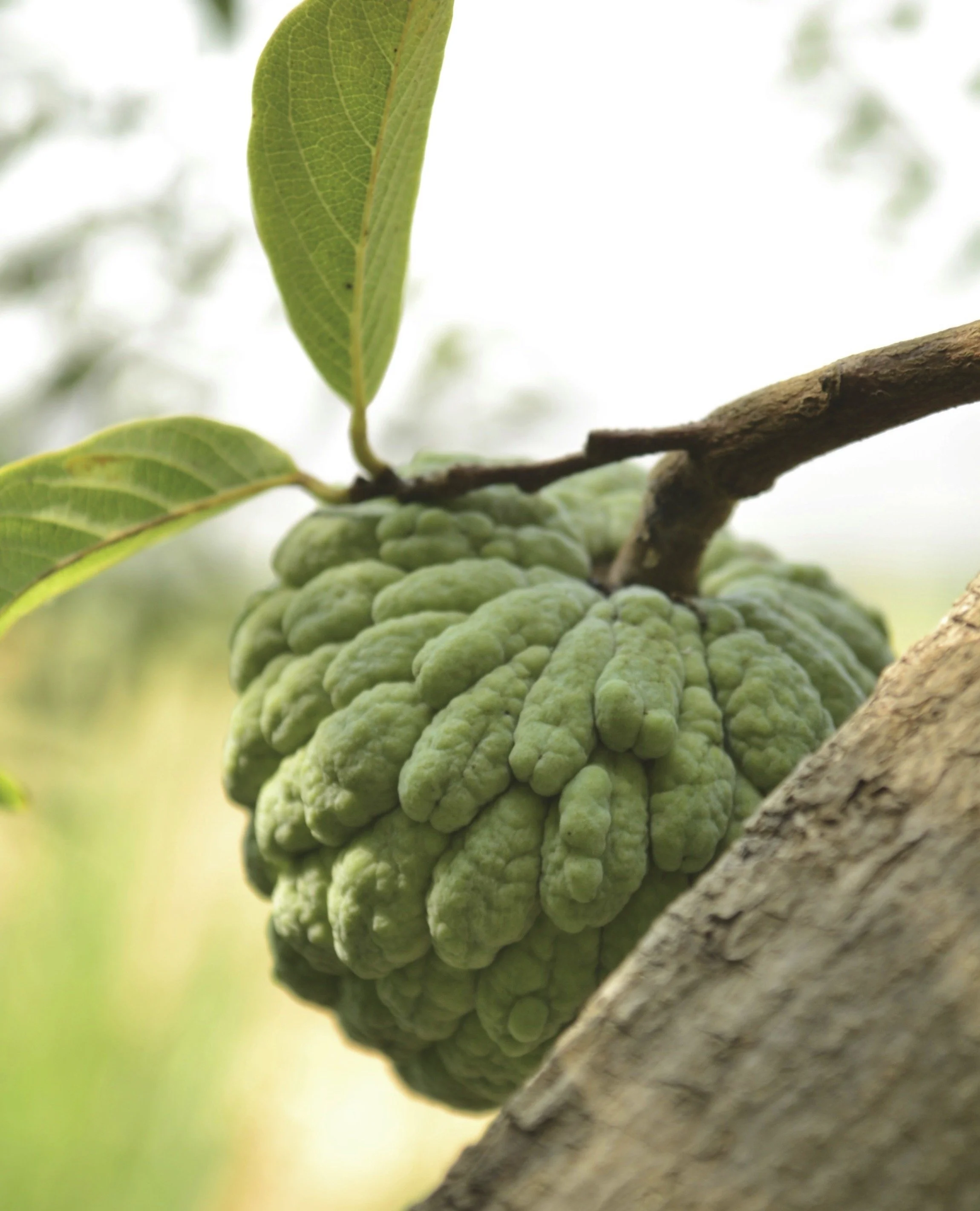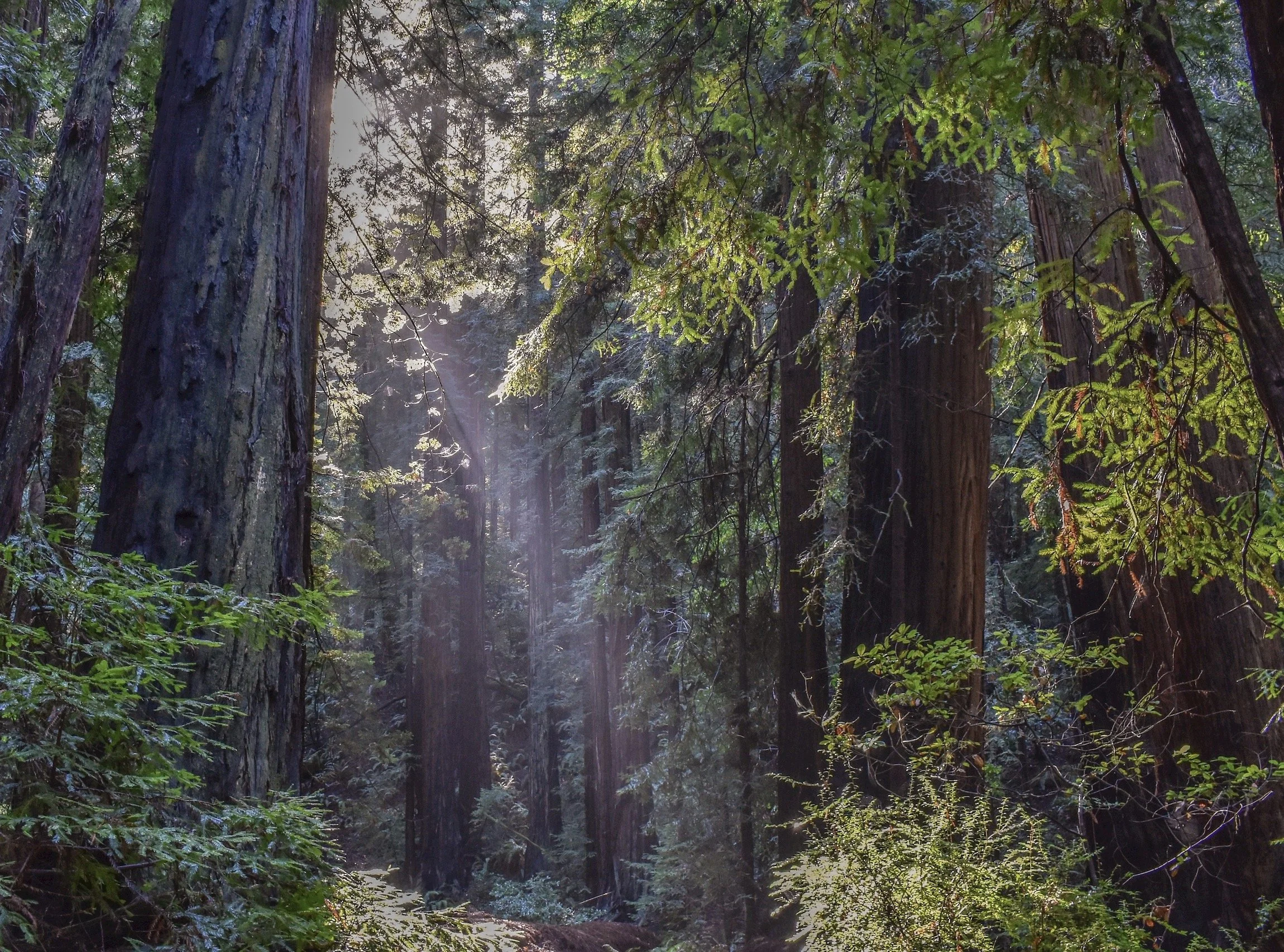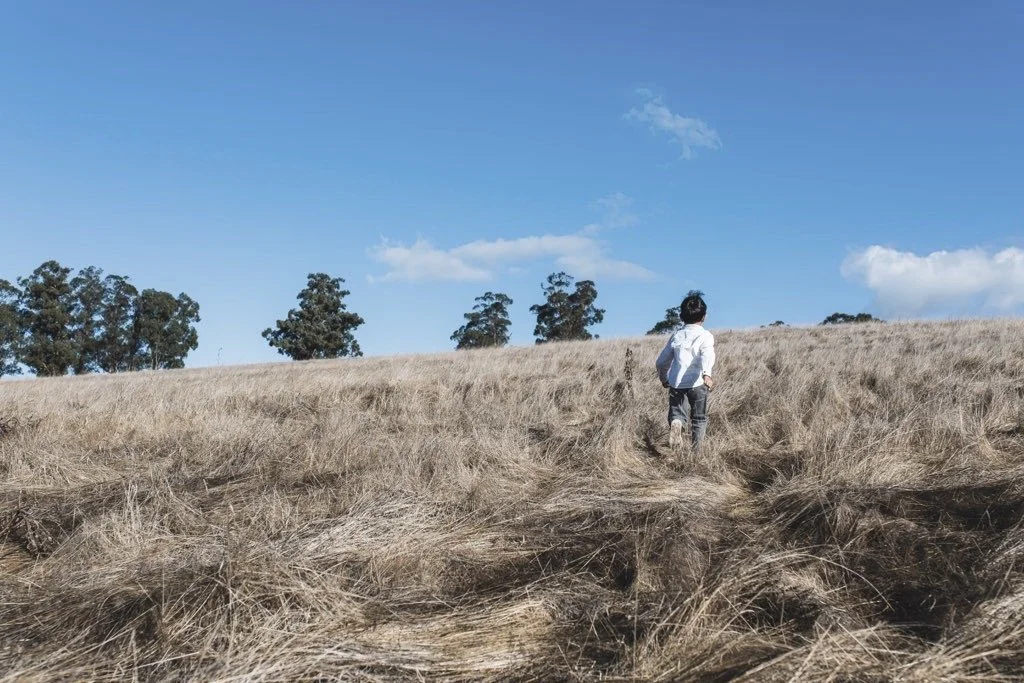The Forgotten Fruit
We leave something of ourselves behind when we leave a place, we stay there, even though we go away.
- Pascal Mercier, Night Train to Lisbon
I went back because I was supposed to, riding a wave of good intentions through a fourteen-hour plane ride to take our kids back to my parents’ place of origin. Memories from my own trips to Taiwan as a child remain burned into memory—plastic fans circulating humid air as we drowned in sweat and mosquitos; shucked oysters pooling in the sieve in my grandmother’s sink before she cooked them with eggs. The adorable, toothy grins of my countless cousins. The sweet burst of juicy mangoes; shaved ice and red bean popsicles and pretty much all the desserts. But the passage of time, and moving to California, dulled any allure those memories held. We could get pretty good, if not entirely authentic, shaved ice here just fine. And those cousins had sprouted into adults I no longer recognized in the occasional photos we were sent. There wasn’t anything in Taiwan that had compelled me to return before duty finally dragged me back.
So it came as a bit of a surprise to see, sitting on the counter of our rented apartment as we stumbled in with the bleary disorientation that only jet-lag (and a bout of the flu) can give, something I hadn’t seen in nearly two decades: my favorite fruit in the world. There’s no apt word for in the English language. It looks bizarre, like an overgrown, fuzzy green artichoke, falling apart when ripe to reveal opaquely white flesh both soft and a bit mochi-like in consistency, studded with large black seeds. It’s juicy enough to be sticky and messy to eat, unabashedly sweet, and the flavor is difficult to describe. It appears with the label “apple custard,” a tacky translation (typical of Taiwanese products, come to think of it) which is patently unhelpful as it tastes nothing like apples or custard.
I think Taiwan and I have always gotten along because in Chinese culture, food is a love language: as soon as my relatives figured out I liked this particular fruit, it showed up everywhere. One uncle went out and got a huge box of them, individually cushioned in foam lest they fall apart as they ripened, and I gently lugged them around like babies through the trains and taxis of our trip, letting myself eat one (or two) a day. No need for us to attempt bridging the communication gap caused by my third-grade level Mandarin: all they had to do was shove me a box of fruit.
Eating that fruit was like being reunited with something I had forgotten to miss. Not once in decades had it crossed my mind, but once I saw it, I remembered what I had been missing. The entire trip was that kind of remembering: seeing the tears on my mom’s face as she embraced my centenarian grandmother, the casual affection with which she clasped her younger brother’s hand as they walked down the street. The way my dad’s brother looked exactly like a younger, jollier version of himself, with the same cant of the eyes and folds in his face when he smiled. Finding I still recognized all the faces of my relatives, even cousins who now loomed above me. Very few times had these people, this place, crossed my mind in decades past, and yet I saw now all our family had missed, growing up oceans apart.
And yet even as I remembered what I missed, I knew I wouldn’t be missing it enough to come back for it. Our lives were too different: I was too different. Even as I saw this remembered side of myself, the one that ate lobes of milky white fruit and hugged grown cousins and saw my parents’ past in the faces of their families and the places we walked through—even as that part of myself took shape, I realized I had already grown so far apart from it that it would simply fade comfortably from view after I returned to my regular life. Yes, the moment was sweet: but also so disconnected from the person I had become that it wouldn’t last long. Each revelation came paired with release: hello, again; goodbye, forever.
At one point I asked my aunt, do you want one of these fruits? And she said, oh no dear, we can get them all the time, and they’re too sweet to eat too often. And I was reminded that in the end, I’m a tourist passing through a strange land. I’m being showered with something I had forgotten I even missed, yet even while the taste is melting from my tongue I know it’s not entirely real, that I don’t belong there enough to come back. And so I enjoyed eating the fruit, not only for the missed years in the past, but for all the ones in the future too.






